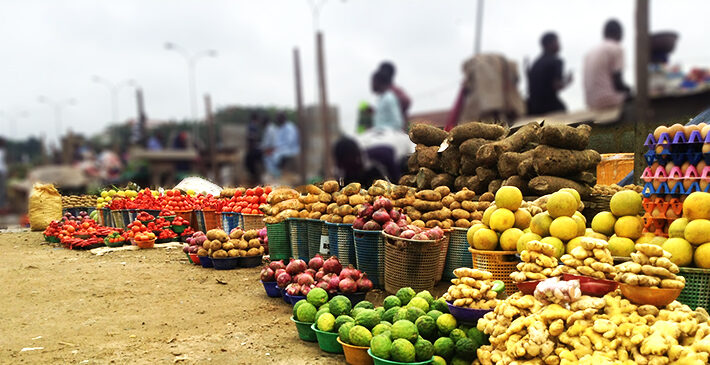Nigeria’s efforts to achieve food security are facing renewed scrutiny as slow progress in agricultural productivity, supply chain efficiency, and policy implementation continues to spark concerns among stakeholders. Despite government programmes aimed at boosting local food production, experts warn that the pace of improvement remains insufficient to meet the growing demands of the country’s rapidly expanding population.
Recent reports from agricultural monitoring bodies indicate that food inflation, adverse weather conditions, and inadequate infrastructure are among the major obstacles hindering progress. The combination of these factors has not only kept food prices high but also deepened the struggles of vulnerable households, many of whom spend a significant portion of their income on basic staples.

According to the National Bureau of Statistics (NBS), food inflation has remained stubbornly elevated in recent months, driven largely by rising costs of transportation, post-harvest losses, and insecurity in key farming regions. The situation has raised fears that without urgent and sustained interventions, millions of Nigerians could face worsening food insecurity.
Agricultural experts point to several gaps in current initiatives. While government-backed programmes such as the Anchor Borrowers’ Scheme and various fertilizer subsidy plans have provided some relief, challenges in reaching smallholder farmers persist. Limited access to affordable credit, mechanisation, and high-quality seedlings continues to hinder large-scale productivity gains.
Dr. Adewale Ogunleye, an agricultural economist, noted: “Nigeria has the potential to feed itself and even become a net exporter of certain crops. However, the current rate of progress is too slow. We need to address systemic issues like rural infrastructure, access to finance, and climate adaptation if we are to make any significant headway.”
The impact of insecurity on food production has also been a major concern. Armed conflicts, banditry, and farmer-herder clashes have displaced thousands of farming families, particularly in the northern states, reducing cultivated land and disrupting local markets. This has compounded the supply shortages and added pressure on already high food prices.
Climate change is another critical factor affecting food production. Erratic rainfall patterns, prolonged dry spells, and flooding have damaged crops in recent years, reducing yields and undermining farmers’ livelihoods. Experts argue that without robust investment in climate-smart agriculture, the country’s food security targets will remain out of reach.
Consumer advocacy groups are urging the government to take more decisive action, including improving storage facilities to reduce post-harvest losses, rehabilitating rural roads to ease the movement of farm produce, and providing targeted subsidies for vulnerable farming communities.
In response, the Federal Ministry of Agriculture has reiterated its commitment to achieving food self-sufficiency, highlighting ongoing projects in irrigation expansion, agro-processing, and farmer training. Officials also point to recent partnerships with private sector investors to scale up food production and processing capacity.
However, critics argue that many of these initiatives suffer from poor coordination and slow execution, often hampered by bureaucratic delays and inadequate funding. They stress that tackling food insecurity requires a coherent, long-term strategy that integrates agriculture with broader economic and social policies.
Urban residents have been particularly affected by the food price surge, with many adjusting their diets, reducing meal portions, or turning to cheaper, less nutritious options. Public health experts warn that this could lead to increased malnutrition rates, especially among children, if the trend continues.
International development partners, including the Food and Agriculture Organization (FAO), have expressed readiness to support Nigeria’s food security drive through technical assistance, funding, and capacity-building programmes. They emphasize, however, that local leadership and political will remain key to sustaining any progress.
With Nigeria’s population projected to surpass 250 million within the next two decades, stakeholders agree that achieving food security is not just an agricultural issue but a national security priority. Unless swift and coordinated actions are taken, the gap between food supply and demand is likely to widen, with serious economic and social consequences.
The slow pace of progress has therefore heightened calls for urgent reforms and greater investment in the agricultural sector—measures that, if effectively implemented, could turn Nigeria’s vast agricultural potential into a solid foundation for lasting food security.
Support InfoStride News' Credible Journalism: Only credible journalism can guarantee a fair, accountable and transparent society, including democracy and government. It involves a lot of efforts and money. We need your support. Click here to Donate
